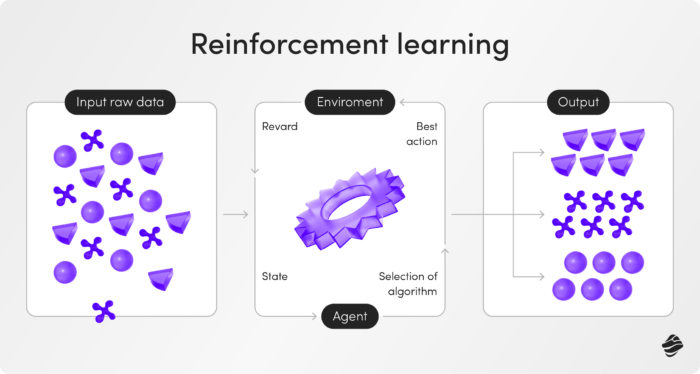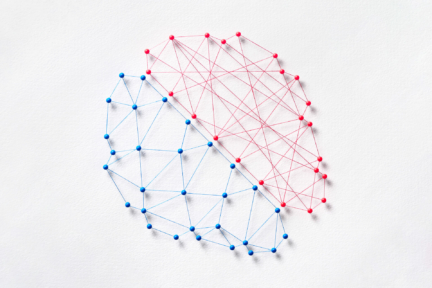- Home
- AI Glossary
- Reinforcement Learning Definition


Reinforcement Learning Definition
Reinforcement Learning Definition
Reinforcement Learning Meaning
Reinforcement Learning is a branch of machine learning services that empowers computers to make optimal decisions through direct interaction with their environment. This process is fundamentally different from other learning methods like supervised or unsupervised learning, as it doesn’t rely on pre-existing datasets. Instead, Reinforcement Learning involves trial and error, where a computer or a machine learns by exploring the environment and receiving feedback – rewards for beneficial actions and punishments for harmful ones.
Reinforcement Learning: Simple Definition
The essence of Reinforcement Learning is its suitability for situations involving a series of interconnected decisions. For example, in the game of backgammon, each move impacts the subsequent ones, requiring a sequence of well-thought decisions. This ability to handle decision-making processes in scenarios with many possible actions and outcomes makes Reinforcement Learning valuable for complex control problems, such as operating robots or self-driving cars.
How Does Reinforcement Learning Work?
Reinforcement Learning enables an agent to learn from its actions and make decisions based on the outcomes. The agent perceives and interprets its environment, takes actions, and learns through trial and error. This approach involves a feedback system that rewards desired behaviours and penalises undesired ones, guiding the agent toward long-term and maximum overall rewards.
Most Reinforcement Learning systems are based on the Markov decision process, where an agent in a specific state must select the best action from multiple possibilities. Each choice leads to different states, each with different rewards that accumulate over time. This cumulative reward influences the agent’s strategy for future actions. For instance, Reinforcement Learning is used to train logistics robots to select actions in a warehouse environment, receiving feedback and rewards that shape their future strategy.

Reinforcement Learning: Use Cases
Reinforcement Learning has seen successful applications in various areas, including gaming, resource management, personalised recommendations, and robotics. This application diversity showcases Reinforcement Learning’s versatility in adapting to different environments and tasks, though its broader adoption is still evolving.
A notable application of Reinforcement Learning is in the field of natural language processing (NLP), specifically in Reinforcement Learning from Human Feedback (RLHF). This approach combines traditional Reinforcement Learning techniques with human guidance to refine the learning process. A prime example is ChatGPT, where human assessments of a pre-trained language model’s responses help steer the model toward producing more natural and helpful outputs.
Ready to discover more terms?





